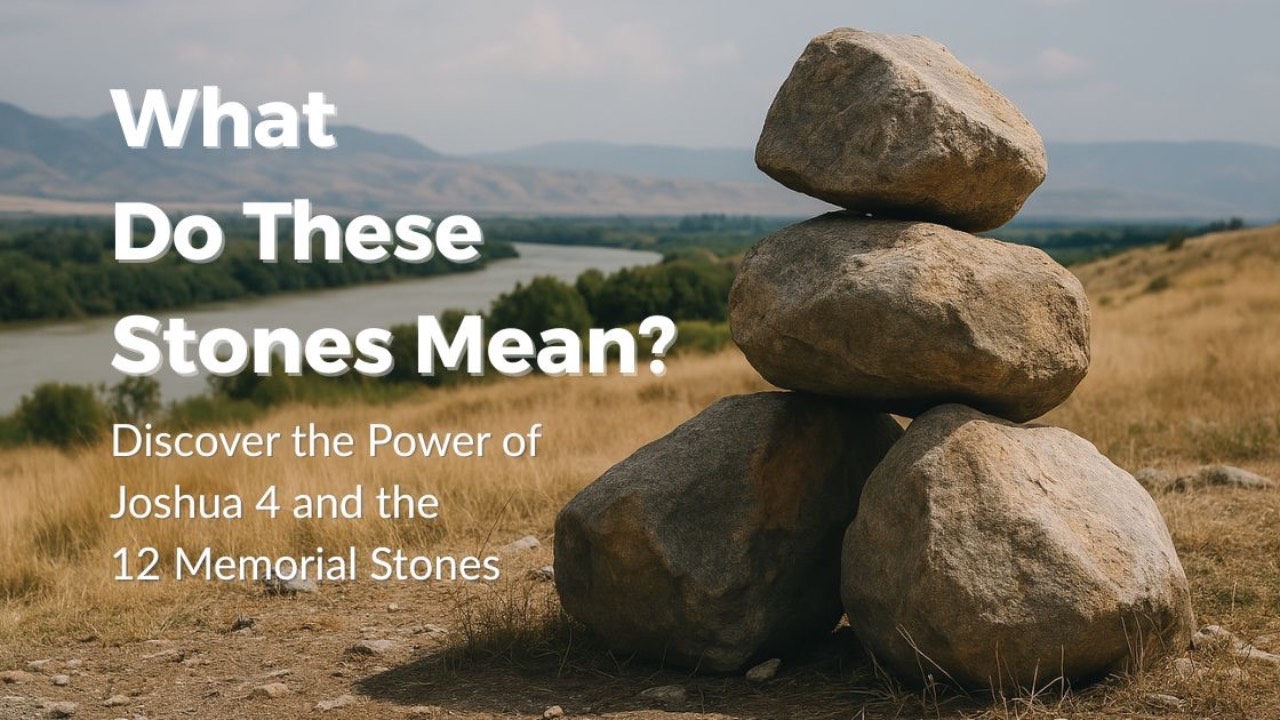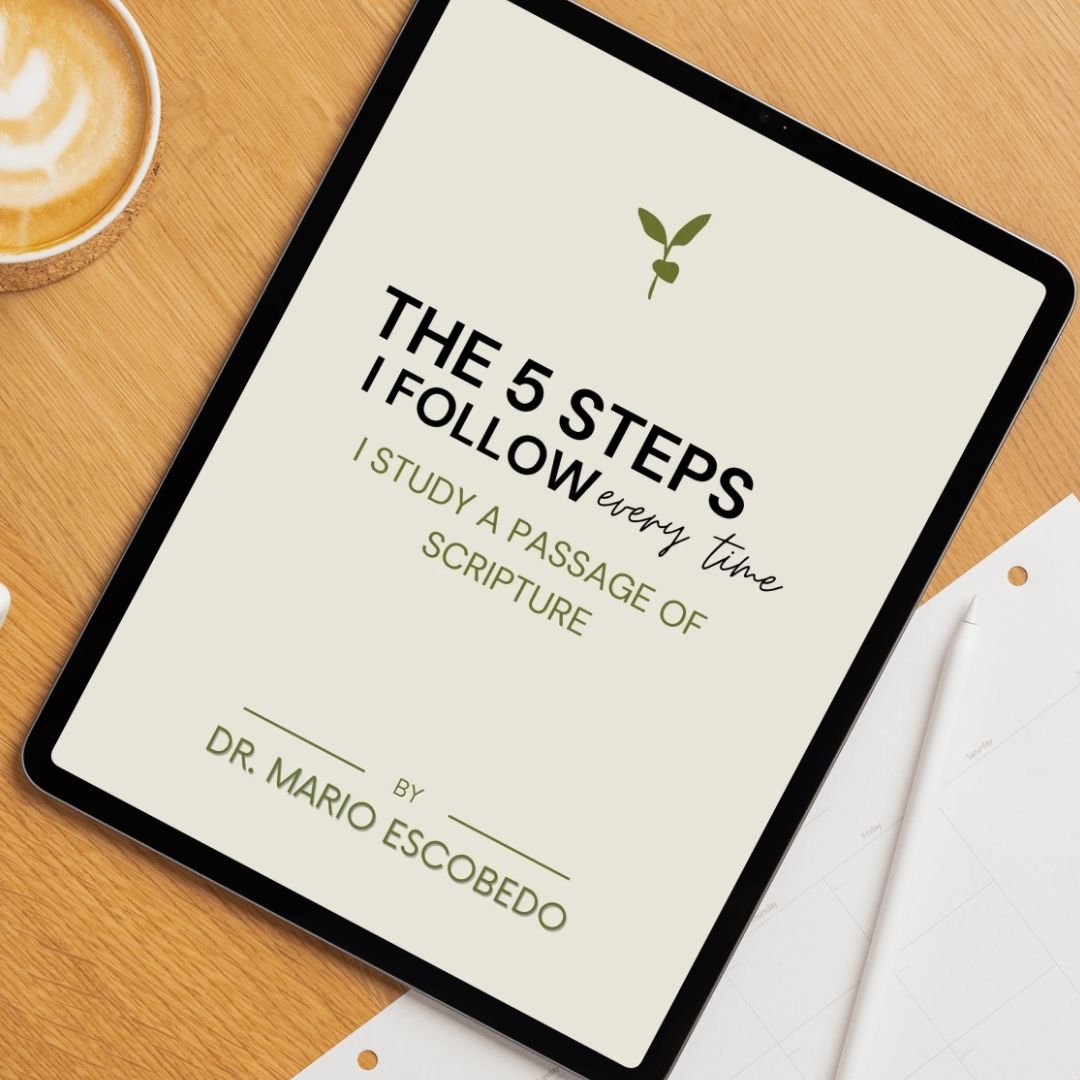What the 12 Memorial Stones in Joshua 4 Teach Us About God's Faithfulness and Generational Legacy
Apr 08, 2025
When the people of Israel stood at the edge of the Jordan River, it wasn’t just a geographical moment—it was a defining spiritual transition. In Joshua chapters 3 and 4, we read the powerful account of how God miraculously stopped the Jordan River during flood season so His people could cross into the Promised Land. But the story doesn’t stop there.
God commanded the Israelites to take 12 large stones from the riverbed and set them up as a memorial—a visible, tangible reminder of His faithfulness and power. In this post, we’ll break down the significance of these 12 memorial stones, why God chose to perform the miracle at flood stage, and what it means for our faith today.
Setting the Scene: The Context of Joshua 3–4
By the time we arrive at Joshua 3, the Israelites have spent 40 years wandering in the wilderness. Moses, their long-time leader, has died, and Joshua has stepped into leadership. Now, under Joshua’s command, the nation stands on the eastern side of the Jordan River, ready to enter the Promised Land.
But there’s a problem—the Jordan is at flood stage. This isn’t a peaceful trickle of water they can walk through. It’s a raging, overflowing river. Still, God tells Joshua that this is the moment He will confirm Joshua’s leadership in the eyes of all Israel, just as He did with Moses.
“Today I will begin to exalt you in the eyes of all Israel, so they may know that I am with you as I was with Moses.”
—Joshua 3:7 (NIV)
This sets the stage for one of the most iconic miracles in the Old Testament.
A Flooded River and a Bold Step of Faith
God instructs the priests carrying the Ark of the Covenant to step into the water. As soon as their feet touch the edge, the river stops flowing. The water from upstream piles up in a heap near the town of Adam (15 miles north), and the rest flows away, leaving dry ground.
“Now the Jordan is at flood stage all during harvest. Yet as soon as the priests who carried the ark reached the Jordan and their feet touched the water’s edge, the water from upstream stopped flowing.”
—Joshua 3:15–16
The Bible deliberately notes that the Jordan River was at flood stage. Why? Because God wasn’t just looking for a convenient moment to help them cross. He was choosing the most impossible moment, the most dangerous, and the least expected time to act.
God made it clear—this wasn’t coincidence. It was divine intervention.
Want to Learn How to Study the Bible Deeply and Effectively?
Download my free guide, "The 5 Steps I Follow Every Time I Study a Passage of Scripture". It’s practical, simple, and will transform how you engage with the Word of God.
Click the image below to download your copy:
Crossing on Dry Ground: A New Generation’s Red Sea
This miracle parallels the parting of the Red Sea during Moses’ leadership. By performing a similar miracle, God reinforced that Joshua was His chosen servant and that His power hadn’t diminished.
“The priests who carried the ark of the covenant of the Lord stopped in the middle of the Jordan and stood on dry ground, while all Israel passed by…”
—Joshua 3:17
God was repeating Himself to show consistency to a new generation. The God who parted the Red Sea was still active and powerful—and would continue leading them into victory.
The Purpose of the 12 Memorial Stones
After the miraculous crossing, God tells Joshua to have one man from each of the twelve tribes take a large stone from the middle of the riverbed. These weren’t small rocks—they were heavy enough to carry on their shoulders. They took them to their camp and set them up as a memorial.
“In the future, when your children ask you, ‘What do these stones mean?’ tell them…”
—Joshua 4:6
These stones were to serve two purposes:
- A reminder for those who witnessed the miracle.
- A conversation starter for future generations.
Imagine a child walking by the Jordan years later, asking, “Why are these rocks stacked here?” That question would lead to a powerful story about God’s provision, presence, and power.
Why Does the Timing Matter?
The Jordan River was in flood season. That fact isn’t just geography—it’s theology.
God didn’t wait for the river to calm down. He didn’t wait for the odds to improve. He chose the worst possible time to prove that His power isn’t limited by natural conditions.
When you’re facing your own “flood stage”—financial stress, illness, broken relationships—God doesn’t say, “Come back when it’s manageable.” He steps in right there, in the chaos, and makes a way.
Personal Memorial Stones—Remembering What God Has Done
The concept of a “memorial stone” isn’t just for ancient Israel. It’s something that can and should apply to our lives today.
In our home, we created memory boxes for each of our daughters. Inside each box are items that represent something significant that God has done in their lives—moments of healing, provision, answered prayers, or spiritual breakthroughs. When they were younger, we would pull the boxes out from time to time and go through the contents together.
We’d hold up an item, tell the story, and say, “Do you remember what God did here?”
Just like the Israelites walking past the Jordan River, our daughters were able to see, touch, and relive the faithfulness of God. These weren’t just mementos. They were memorials—reminders that God sees, He hears, and He acts.
Teach Your Children: Don’t Waste the Story
One of the most powerful things about the stones in Joshua 4 is that they were meant to provoke questions. “What do these stones mean?” wasn’t a burden—it was a God-given opportunity.
“These stones are to be a memorial to the people of Israel forever.”
—Joshua 4:7
God designed the memorial to be a conversation starter for generational faith transfer. Your kids may not remember the day you got healed, the year you got out of debt, or the night you prayed in desperation—but if you tell the story, they will remember the God behind it.
Faith is meant to be passed down, not packed away.
From the Jordan to Today: A Call to Remember
The story of the 12 memorial stones in Joshua chapters 3 and 4 is more than just history—it’s a pattern.
- God leads.
- God makes a way.
- God tells us to remember.
- God invites us to share it.
Whether your “Jordan River” was literal or emotional, if you’ve crossed over by God’s grace, it’s time to set up some stones. Not as relics, but as reminders. Because your story matters—not just to you, but to those who come after you.
Final Reflection: What’s Your Memorial Stone?
You don’t have to carve it. You don’t have to carry it.
But you do need to recognize it.
So here’s the question:
What has God done in your life that’s worth remembering?
And more importantly—how are you passing that story on?
Whether it’s a photo, a journal entry, or a memory box filled with testimony—don’t let the memory die with you. Use it. Share it. Teach with it.
Because one day, someone will ask,
“What does this mean?”
And you’ll get to say,
“Let me tell you what God did.”
If you’re new here and want to learn more about who I am, click here to read my About page.
If you'd like to connect or have a question, click here to reach out.
SUBSCRIBE FOR WEEKLY LIFE LESSONS
Lorem ipsum dolor sit amet, metus at rhoncus dapibus, habitasse vitae cubilia odio sed.
We hate SPAM. We will never sell your information, for any reason.

